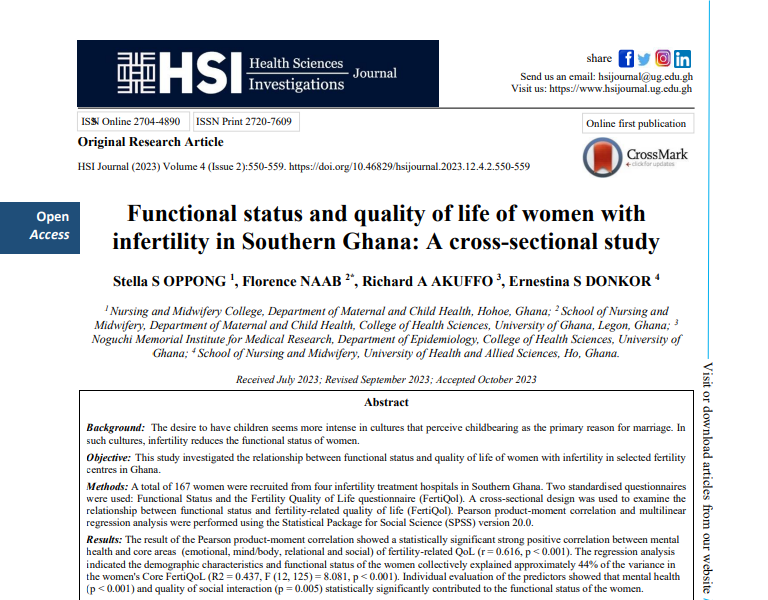Functional status and quality of life of women with infertility in Southern Ghana: A cross-sectional study
Abstract
Background: The desire to have children seems more intense in cultures that perceive childbearing as the primary reason for marriage. In such cultures, infertility reduces the functional status of women.
Objective: This study investigated the relationship between functional status and quality of life of women with infertility in selected fertility centres in Ghana.
Methods: A total of 167 women were recruited from four infertility treatment hospitals in Southern Ghana. Two standardised questionnaires were used: Functional Status and the Fertility Quality of Life questionnaire (FertiQol). A cross-sectional design was used to examine the relationship between functional status and fertility-related quality of life (FertiQol). Pearson product-moment correlation and multilinear regression analysis were performed using the Statistical Package for Social Science (SPSS) version 20.0.
Results: The result of the Pearson product-moment correlation showed a statistically significant strong positive correlation between mental health and core areas (emotional, mind/body, relational and social) of fertility-related QoL (r = 0.616, p < 0.001). The regression analysis indicated the demographic characteristics and functional status of the women collectively explained approximately 44% of the variance in the women's Core FertiQoL (R2 = 0.437, F (12, 125) = 8.081, p < 0.001). Individual evaluation of the predictors showed that mental health (p < 0.001) and quality of social interaction (p = 0.005) statistically significantly contributed to the functional status of the women.
Conclusion: The findings suggest that to improve the quality of life (QoL) of women's infertility, their quality of social interaction, mental health, and work performance should be considered in their treatment and general care.


